- Home
- Stephanie Laurens
A Lady of His Own bc-3 Page 9
A Lady of His Own bc-3 Read online
Page 9
Yet none knew better than he and she that that connection wasn’t, of itself, enough. It hadn’t been years ago; he doubted it would be now.
He needed to build on it, to pursue it and her, explore what lay between them, what might evolve from that, and where it might lead them.
In between pursuing his investigation.
That wasn’t very wise. Indeed. She remained his most direct link to the Selbornes’ scheme; he now had to deal with her on two different levels simultaneously, juggling the investigation and his personal pursuit of her.
Yet he couldn’t regret kissing her; he’d had to learn whether the possibility was there. He’d been tempted to kiss her in the courtyard at Wallingham, but it hadn’t been the right time or place. He’d pulled back, but when on their way from the stables she’d smiled at him and acknowledged she’d been right to trust him with her family’s secret, he’d been buoyed and encouraged enough to seize the moment, to learn if she would trust him in that other sphere, too. Whether there was a chance he could mend their fences even if he wasn’t sure what had flattened them in the first place.
Such uncertainty, unfortunately, was his norm with her. He was an expert with women; he’d studied them for years, understood their minds, and was adept at managing them—all except Penny. She…he was never sure how to deal with her, had never succeeded in managing her, and had long ago given up attempting to manipulate her—the result had never been worth the price. For one of his ilk, such complete and utter failure with a woman was hard to stomach, and somewhat unnerving; he was always alert and watchful with her.
But that kiss had answered his question. Not only had she allowed him to kiss her, she’d enjoyed it and kissed him back, deliberately and considerably prolonging the interlude.
Well and good. He’d cleared the first hurdle, but he knew her too well to presume too much. All he’d gained was a chance to progress to the next stage, to determine how real the possibility that she might consent to be his wife was, how real his chance to convert wish into fact.
He sat staring unseeing out of the window while the clock on the mantelpiece ticked on; eventually, its chiming drew him back, reminding him of the other challenge requiring his attention.
Swinging back to his desk, he turned his mind to his mission. There, at least, the way forward was clear. The information Caudel, an exposed villain, had divulged before he’d died seemed in essence correct; it was now up to him, Charles, to ferret out the details and hand them over to Dalziel. He was very good at ferreting; one way or another, he’d get to the bottom of the Selbornes’ scheme.
First things first. Reaching for the book of maps, he set it on his blotter and opened it.
Penny wandered the gardens, thinking, to her considerable distraction reliving those minutes on the lawn under the trees. Those minutes she’d spent in Charles’s arms. She could still feel his lips on hers, still feel the effects of the kiss; it had definitely not been a wise indulgence.
On the other hand, it had been fated to happen; that elemental attraction she recognized from long ago had been steadily building over the past days and would inevitably have led to the same culmination, somewhere, sometime. He’d been right to choose an unthreatening setting. Now he’d kissed her and his curiosity—if she was truthful both their curiosities—had been appeased and satisfied, presumably that would be the end of it.
She paused, frowning at a rosebush. It wouldn’t, of course, be the end of her susceptibility—that, she’d realized, was an affliction for life—but presumably they could now put their mutual attraction behind them, ignore it, or at least accord it no importance. That undoubtedly was the best way forward; that was what she would do.
His investigation had only just commenced; as she intended to be beside him throughout, getting that kiss out of the way had been a good thing.
She returned to the parlor. When Charles didn’t reappear, she muttered an oath, then rang for tea; when Filchett entered with the tray, she told him to follow her and headed for the study. She knocked once, barely waited for Charles’s “Come” before opening the door and walking in. “It’s time for tea.”
He looked up, met her gaze, paused as if considering his response.
Blithely waving Filchett to the desk, she sat in one of the chairs before it. She heard Charles’s half-stifled sigh as he set down his pen and shut her father’s book to make room for the tray.
He’d been composing some list; that much she’d seen. She waited until Filchett withdrew. Sitting forward, she picked up the pot and poured. “What have you decided?”
If he thought she was going to let him deal her out of this game, he was mistaken. Lifting her cup from the tray, she sat back.
He looked at her, then picked up his cup and saucer. “My ex-commander’s focus is on identifying who in the ministry handed your father and Granville the information we’re assuming they traded for the pillboxes. Making a case against your father or Granville won’t interest him; not only are they dead, but they’re also clearly not the prime instigators of the scheme. Your father never had access to government secrets; he remained in the country most of his life—no self-respecting French agent would have even considered approaching him.”
“You think Amberly was the instigator.”
He sipped his tea, nodded. “Originally, yes. You said your father started collecting pillboxes while staying with Amberly in Paris. However, Amberly retired seven years ago, and the passage of information continued until recently.”
“So the baton, as it were, was passed from father to son, both in Amberly’s case as well as Papa’s?”
“It fits. Especially with dear Nicholas hot-footing it down here just as I appear on the scene.”
She frowned. “Could he have heard you were coming to investigate?”
“It’s possible.” He set down his cup. “While Dalziel takes these matters seriously, not everyone in the ministries is so inclined. Many think that now the war is over, secrecy isn’t an issue anymore.”
“Hmm…” After a moment, she refocused on his face. “So what now?”
“Now…even though the pillboxes’ existence confirms that some traffic, presumably in secrets, occurred with the French, they don’t implicate Nicholas or Amberly, no matter that Nicholas clearly knows of them. I need evidence that specifically ties Amberly or Nicholas to the traffic of Foreign Office secrets—how I’m to get that is what I’m presently wrestling with.”
She glanced pointedly at his list. “You’ve decided on something.”
He hesitated, then reluctantly said, “I’ve contacts of my own with the local smuggling gangs—as you so perspicaciously noticed, I’ve used them on and off over the years.” Picking up his pen, he toyed with it. “I can see two reasons for Nicholas behaving as he is—either he’s trying to ensure that Granville’s and therefore his tracks remain covered, or, just possibly, he believes there might be some new contact made, or at least some reason he might again need to use the smugglers as a conduit to the French. Either way, he’s out there asking questions.” His lips curved, not in a smile. “I’m considering whether I should arrange for him to receive some answers.”
“Such as what?”
“I won’t know until I get a better idea of what he’s been asking. Is he really setting himself up as Granville’s active replacement, or is he merely trawling to learn which group Granville used for running the secrets so he’ll know who has to be kept quiet?”
She shook her head. “I haven’t heard enough to say.” Leaning forward, setting her elbow on the desk, she propped her chin in her hand.
Charles watched her face as she thought, watched her thoughts flow through her expressive eyes.
“Given we’re certain Granville and Nicholas were in this hand in glove, wouldn’t Granville have told Nicholas which group he used?”
He shook his head. “Secrecy is a byword among the fraternity. Granville played at being a smuggler for a good many years; he would have absorbed that lesson
well. Unless there was some exceptionally strong reason—and I can’t see what it might be—I seriously doubt telling Amberly or Nicholas who his smuggling friends were would have entered Granville’s head.”
She grimaced. “That sounds right. He was as close as a clam over anything to do with smuggling.” Her gaze dropped to his list. “So what have you written there?”
He had to smile, even though the message she was sending his way—that she wasn’t going to let him pat her on the head and tell her to go and embroider—wasn’t one he was happy about. “It’s a list of the gangs that might have been involved. I’ll need to contact them myself. They’ll hear soon enough why I’m here—I need to make clear that neither I nor the government has any interest in them but only in what they can tell me.”
“What if you run into Nicholas?”
“I won’t. You said he visited Polruan two nights ago—I’ll start there.”
“When? Tonight?”
No point trying to prevaricate. “I’ll ride down after dinner. If they ran goods last night, they should be in the Duck and Drake this evening.”
She nodded; he couldn’t tell what she was thinking.
“Tell me about Amberly—how frequently did your father and he meet?”
She thought, then answered, telling him little he hadn’t already surmised. But his questions served to distract her. After ten minutes of steady inquisition, she stirred. “I’ll take the tray—I want to speak to Mrs. Slattery.”
He rose and held the door for her. She departed with the air of a lady with her mind on domestic concerns. Closing the door, he paused, then returned to his desk and his plans.
They met again over dinner; he came prepared with a stock of friendly familial inquiries designed to keep her mind far away from his evening appointment in Polruan. In that, he thought he succeeded; when they rose from the table, she retired for the evening, electing to go straight to her chamber. She didn’t even mention his planned excursion; he wondered if it had slipped her mind.
He returned to his study to read through the report he’d penned for Dalziel. He’d thought long and hard, but in the end he’d named names, accurately setting down all he’d learned thus far. Even more than his six collegues from the Bastion Club, he’d entrusted his life to Dalziel’s discretion for thirteen years; Dalziel had never let him down.
Even though they’d yet to solve the riddle of who exactly Dalziel was, whoever he was he was one of them—a nobleman with the same sense of honor, the same attitude toward protecting the weak and innocent. Penny and Elaine and her daughters stood in no danger from Dalziel.
Sealing the letter, he addressed it, then rose. The clock on the mantelpiece chimed ten o’clock. Opening the study door, he called Cassius and Brutus from their sprawl before the fire; stretching, grumbling, they clambered up and obeyed.
Shutting the door, he strolled to the front hall, dropped his letter on Filchett’s salver on the sideboard, then went upstairs, the hounds at his heels.
Ten minutes later, dressed to ride, he opened the garden door, stepped outside, softly closed the door, and turned for the stables.
He’d taken three strides before the shadow glimpsed at the edge of his vision registered. He halted, swore softly, then, hands rising to his hips, swung around to face Penny. Clad once more in breeches, boots, and riding jacket, with a soft-brimmed hat cocked over her brow, she’d been leaning against the wall a yard from the door—waiting.
So much for his successful distraction.
He set his jaw. “You can’t come.”
The moon sailed free tonight; she met his eyes. “Why not?”
“You’re a lady. Ladies don’t frequent the Duck and Drake.”
She straightened from the wall, shrugged. “You’ll be there—I’ll be perfectly safe.”
He watched her tug on her gloves. “I’m not taking you with me.”
Lifting her head, she looked at him. “I’ll follow you, then.”
With an exasperated hiss, he dropped his head back and looked up into a nearly cloudless sky. She knew the area almost as well as he did; with the moon shining down, she could follow him easily, and in any case she knew his destination—because he’d been idiot enough to tell her!
“All right!” He looked at her again, scanned her attire, shook his head. “You’re never going to pass for a male.”
“It’s not a disguise.” She smiled—a light, relaxed smile as if she’d never doubted his capitulation—and fell in beside him as he turned and strode for the stables. “Everyone in Polruan knows who I am. They know it’s easier to ride astride than sidesaddle around here, and they’re not the sort to be scandalized by my wearing breeches. They’ll barely notice.”
He glanced down at her long legs, booted to the knee, sleek thighs occasionally visible when the material of her breeches drew taut, and managed not to snort. The smugglers of Polruan were no more blind than he.
Exercising rigid control, he managed to keep his mind from contemplating her anatomy—any part of it—while he saddled their horses, then tossed her up to her saddle. On her mare, she trotted out of the stable beside him. Inwardly shaking his head—how had he let this happen?—he set course south, over the moonlit fields to Polruan.
A small fishing village situated on the easterly head of the Fowey estuary, Polruan consisted of little more than a cluster of tiny cottages and the obligatory tavern in which the men of the village, virtually all fishermen, usually spent their evenings, at least when they weren’t out running some illicit cargo through the breakers just east of the estuary mouth.
Although the area was riddled with smuggling gangs, each had its own patch, its own favored inlets and coves. While the Fowey Gallants, who had taken their name from the local pirate raiders who’d been the bane of the French coastal towns throughout the Hundred Years War, were the largest and best organized gang in the area, Charles suspected Granville might have used one of the smaller gangs for making contact with the French.
As Penny had said, Granville hadn’t been a fool. The fewer people who knew anything of his business, the better.
They reached the Duck and Drake and dismounted. Charles gave their horses to a towheaded lad from the crude stable beside the tavern. Returning to where Penny waited near the door, he yanked her hat low. A floppy, wide-brimmed affair sporting a pheasant’s feather, it would pass for a man’s hunting hat at first glance. “Keep your head down and do exactly as I say.”
She muttered something unintelligible; he didn’t think it was a compliment. Grasping her elbow, he opened the door, swiftly glanced around as he propelled her over the threshold. Giving thanks for the poor light, he steered her to an unoccupied table and benches in one corner.
He released her. “Slide in.”
She did. As he followed, forcing her along the bench into the corner, she murmured, “Am I allowed to speak?”
“No.” He looked around, noting familiar faces, nodding to two. He glanced at her. “Wait here—keep your head down. I’ll be back in a moment.”
Rising, he went to the bar, a simple wooden counter balanced atop two old kegs. He nodded to the barkeep, who recognized him; taciturn but friendly, the man murmured a “m’lord” and drew the two pints he requested.
Charles didn’t bother chatting—that wasn’t how things were done, how business was conducted with the gentlemen.
The barkeep thumped two frothing tankards on the counter. Charles tossed him some coins and a nod, picked up the tankards, and walked back to the corner table. Setting down the tankards, he slid in beside Penny, pushing one tankard her way. Raising the other, he sipped, then let his gaze wander the room. And settled to wait.
Penny, gaze still dutifully cast down, peered into the tankard before her. She assumed it was the local ale; it had a foamy froth on top. Mentally shrugging, using both hands she lifted the tankard and sipped.
Choked. Spluttered. Coughing, she put the tankard down the instant before Charles thumped her back.
&n
bsp; Blinking rapidly, clearing her watering eyes, she met his. “That’s…disgusting.”
He rolled his eyes. “It was only supposed to be for show.”
“Oh.” She wondered if there was any other drink one could order in a tavern, but decided against asking. They were sitting shoulder to shoulder; she could feel a faint tension in him, even though outwardly he appeared relaxed.
He said nothing, simply drank the vile brew, and in between stared into his tankard, or into space.
She pretended to sip, and wished something would happen.
More than ten minutes dragged by, then two burly fishermen at the table before the fire nodded to their friends and rose. Straightening, the pair studied Charles and her, then slowly came their way.
Watching from beneath the brim of her hat, Penny kicked Charles’s ankle.
He kicked her back. Since he’d been staring into his ale for the past several minutes, she cast him a narrow-eyed glare.
The fishermen paused by the bench on the other side of the table.
“Evening, Master Charles—ah, no, that’d be m’lord now, I reckon.”
Charles looked up, his expression easy, and returned the men’s nods. “Shep. Seth. How’s buisness?”
Both men grinned, showing gaps in yellowed teeth.
“Fair to middling. Can’t complain.” Shep raised his brows. “We was wondering if you was after anything special-like?”
Charles waved them to sit, simultaneously shifting sideways, squashing Penny farther into the shadows of the corner. She moved as far as she could, but he crowded her, his hip and thigh against hers, trapping her, his shoulder partially screening her even from the men settling on the bench opposite.
Both had thus far rather pointedly kept their gazes from her.
Charles signaled the barkeep, who came, wiping his hands on his apron. Charles ordered three more pints; Seth and Shep were clearly pleased.
He waited until the tankards were delivered and Seth and Shep had taken a long draft before saying, “You’ll hear soon enough for it’s no secret. I’m down here looking for information on meetings Granville Selborne had with the French. Before I go on, I should explain that I was sent to ask the questions because the government has no interest in anyone who might have helped Granville meet the French. All the bods in Whitehall want is to know how he did it, anything I can learn about who he met, and about any English gentleman who might have been Granville’s associate in such matters.”

 Lady Osbaldestone’s Plum Puddings: Lady Osbaldestone’s Christmas Chronicles Volume 3
Lady Osbaldestone’s Plum Puddings: Lady Osbaldestone’s Christmas Chronicles Volume 3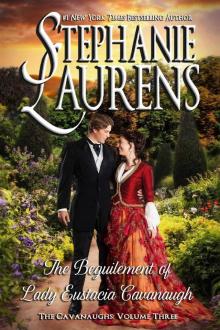 The Beguilement of Lady Eustacia Cavanagh: The Cavanaughs Volume 3
The Beguilement of Lady Eustacia Cavanagh: The Cavanaughs Volume 3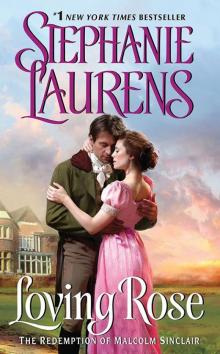 Loving Rose: The Redemption of Malcolm Sinclair (Casebook of Barnaby Adair)
Loving Rose: The Redemption of Malcolm Sinclair (Casebook of Barnaby Adair)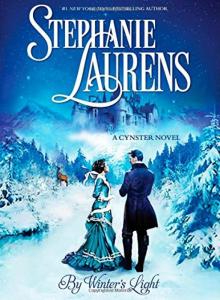 By Winter's Light
By Winter's Light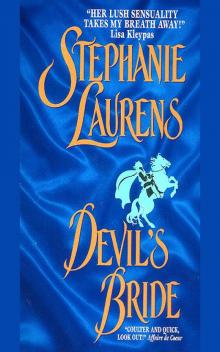 Devil's Bride
Devil's Bride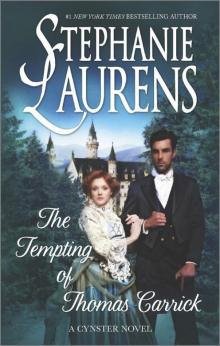 The Tempting of Thomas Carrick
The Tempting of Thomas Carrick![Cynster [22.00] A Match for Marcus Cynster Read online](http://i1.bookreadfree.com/i/03/16/cynster_[22_00]_a_match_for_marcus_cynster_preview.jpg) Cynster [22.00] A Match for Marcus Cynster
Cynster [22.00] A Match for Marcus Cynster All About Love c-6
All About Love c-6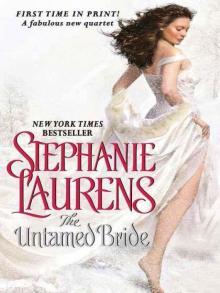 Cobra 01 The Untamed Bride
Cobra 01 The Untamed Bride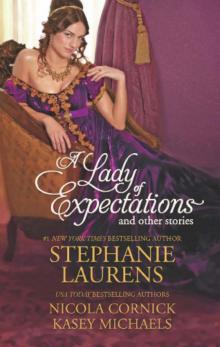 A Lady of Expectations and Other Stories
A Lady of Expectations and Other Stories By Winter's Light_A Cynster Novel
By Winter's Light_A Cynster Novel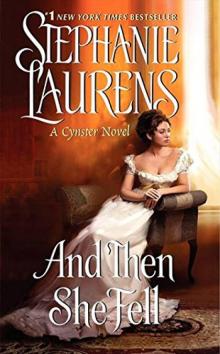 And Then She Fell
And Then She Fell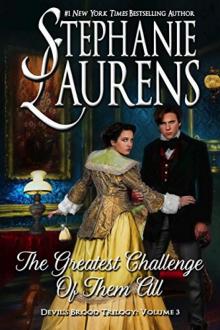 The Greatest Challenge of Them All
The Greatest Challenge of Them All The Edge of Desire
The Edge of Desire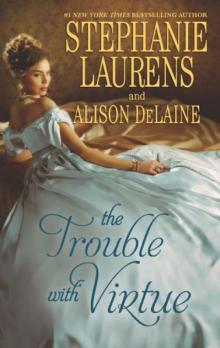 The Trouble With Virtue: A Comfortable WifeA Lady by Day
The Trouble With Virtue: A Comfortable WifeA Lady by Day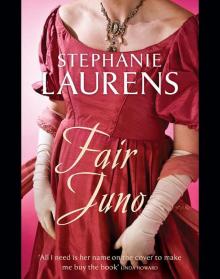 Fair Juno
Fair Juno THE LEGEND OF NIMWAY HALL: 1750 - JACQUELINE
THE LEGEND OF NIMWAY HALL: 1750 - JACQUELINE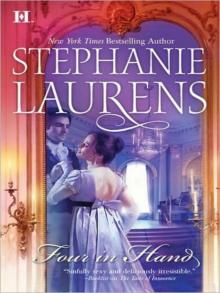 Four In Hand
Four In Hand The Reckless Bride
The Reckless Bride Stephanie Laurens Rogues' Reform Bundle
Stephanie Laurens Rogues' Reform Bundle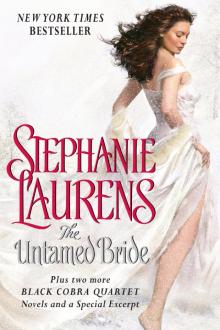 The Untamed Bride Plus Black Cobra 02-03 and Special Excerpt
The Untamed Bride Plus Black Cobra 02-03 and Special Excerpt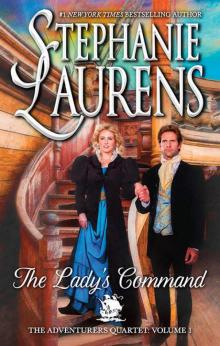 The Lady's Command (Adventurers Quartet #1)
The Lady's Command (Adventurers Quartet #1) The Seduction of Sebastian Trantor
The Seduction of Sebastian Trantor The Daredevil Snared (The Adventurers Quartet Book 3)
The Daredevil Snared (The Adventurers Quartet Book 3)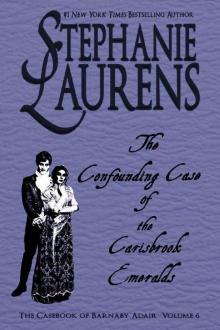 The Confounding Case Of The Carisbrook Emeralds (The Casebook of Barnaby Adair 6)
The Confounding Case Of The Carisbrook Emeralds (The Casebook of Barnaby Adair 6) Lord of the Privateers (The Adventurers Quartet)
Lord of the Privateers (The Adventurers Quartet)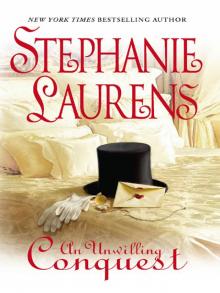 An Unwilling Conquest
An Unwilling Conquest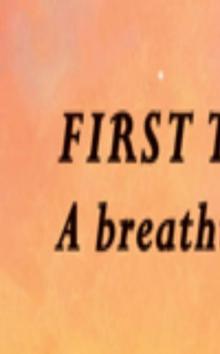 Brazen Bride
Brazen Bride On a Wild Night
On a Wild Night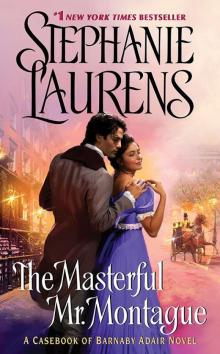 The Masterful Mr. Montague: A Casebook of Barnaby Adair Novel
The Masterful Mr. Montague: A Casebook of Barnaby Adair Novel Lord of the Privateers
Lord of the Privateers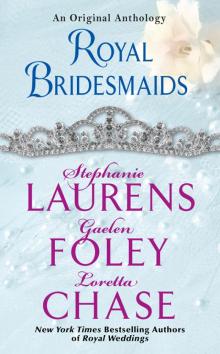 Royal Bridesmaids
Royal Bridesmaids Beyond Seduction
Beyond Seduction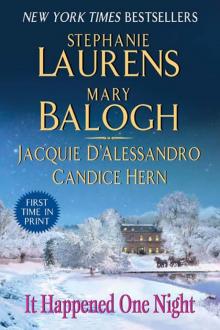 It Happened One Night
It Happened One Night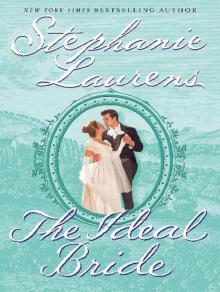 The Ideal Bride
The Ideal Bride The Promise in a Kiss
The Promise in a Kiss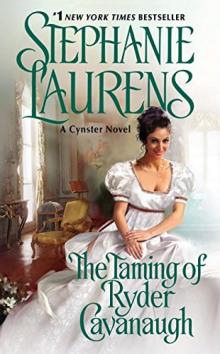 The Taming of Ryder Cavanaugh
The Taming of Ryder Cavanaugh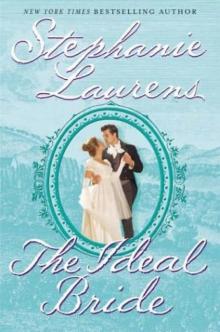 The Ideal Bride c-12
The Ideal Bride c-12 All About Love
All About Love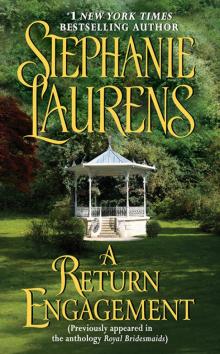 A Return Engagement
A Return Engagement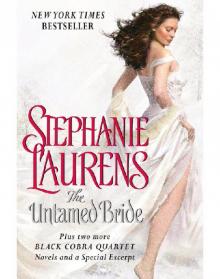 The Untamed Bride Plus Two Full Novels and Bonus Material
The Untamed Bride Plus Two Full Novels and Bonus Material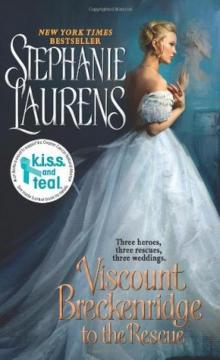 Viscount Breckenridge to the Rescue
Viscount Breckenridge to the Rescue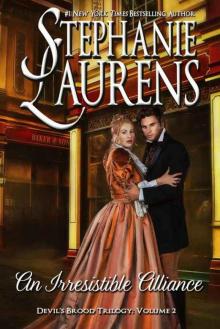 An Irresistible Alliance (Cynsters Next Generation Novels Book 5)
An Irresistible Alliance (Cynsters Next Generation Novels Book 5) The Daredevil Snared
The Daredevil Snared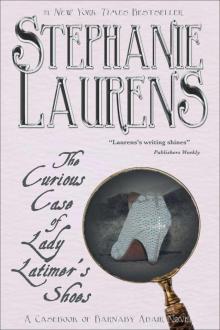 The Curious Case of Lady Latimer's Shoes: A Casebook of Barnaby Adair Novel
The Curious Case of Lady Latimer's Shoes: A Casebook of Barnaby Adair Novel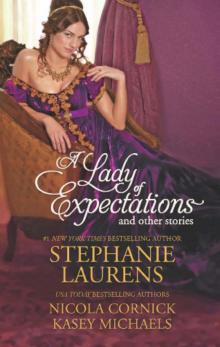 A Lady of Expectations and Other Stories: A Lady of ExpectationsThe Secrets of a CourtesanHow to Woo a Spinster
A Lady of Expectations and Other Stories: A Lady of ExpectationsThe Secrets of a CourtesanHow to Woo a Spinster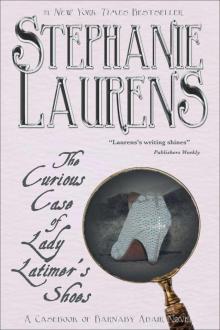 The Curious Case of Lady Latimer's Shoes: A Casebook of Barnaby Adair Novel (The Casebook of Barnaby Adair)
The Curious Case of Lady Latimer's Shoes: A Casebook of Barnaby Adair Novel (The Casebook of Barnaby Adair)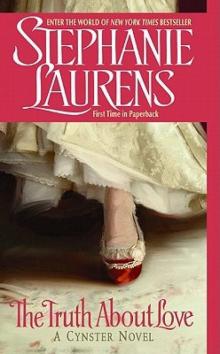 The Truth About Love
The Truth About Love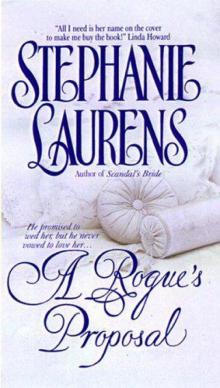 A Rogue's Proposal
A Rogue's Proposal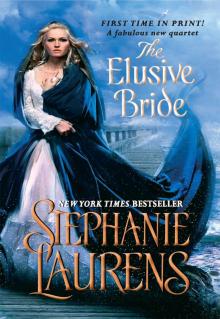 The Elusive Bride
The Elusive Bride The Perfect Lover
The Perfect Lover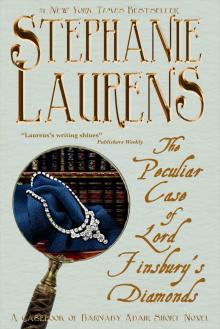 The Peculiar Case of Lord Finsbury's Diamonds: A Casebook of Barnaby Adair Short Novel
The Peculiar Case of Lord Finsbury's Diamonds: A Casebook of Barnaby Adair Short Novel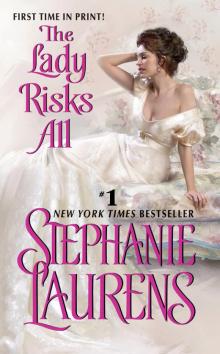 The Lady Risks All
The Lady Risks All The Murder at Mandeville Hall: The Casebook of Barnaby Adair: Volume 7
The Murder at Mandeville Hall: The Casebook of Barnaby Adair: Volume 7 All About Passion
All About Passion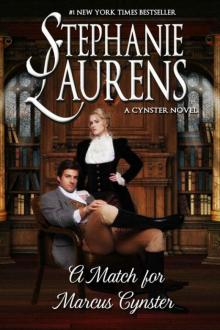 A Match for Marcus Cynster
A Match for Marcus Cynster By Winter's Light: A Cynster Novel (Cynster Special Book 2)
By Winter's Light: A Cynster Novel (Cynster Special Book 2)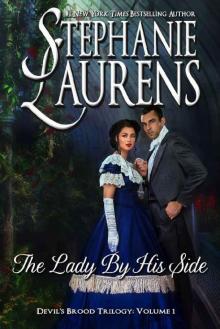 The Lady By His Side
The Lady By His Side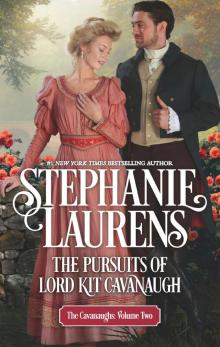 The Pursuits of Lord Kit Cavanaugh
The Pursuits of Lord Kit Cavanaugh Tangled Reins
Tangled Reins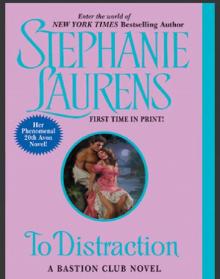 To Distraction
To Distraction A Rake's Vow
A Rake's Vow A Comfortable Wife
A Comfortable Wife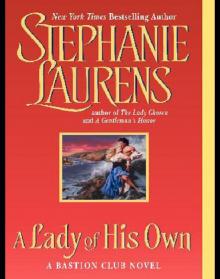 A Lady of His Own bc-3
A Lady of His Own bc-3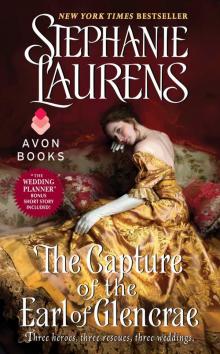 The Capture of the Earl of Glencrae
The Capture of the Earl of Glencrae Scandals Bride c-3
Scandals Bride c-3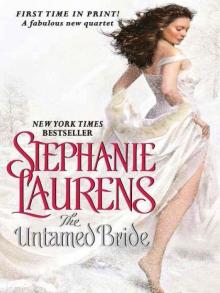 Untamed Bride
Untamed Bride The Brazen Bride
The Brazen Bride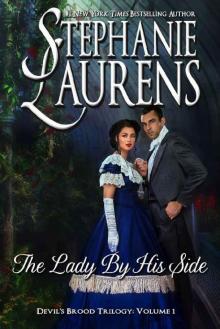 The Lady By His Side (Cynsters Next Generation Novels Book 4)
The Lady By His Side (Cynsters Next Generation Novels Book 4)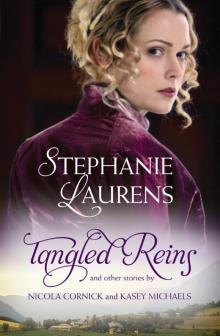 Tangled Reins and Other Stories
Tangled Reins and Other Stories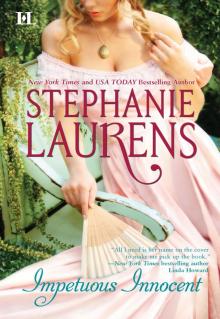 Impetuous Innocent
Impetuous Innocent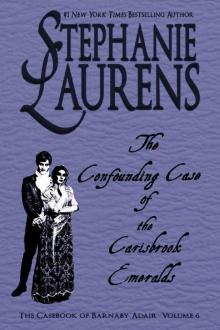 The Confounding Case Of The Carisbrook Emeralds
The Confounding Case Of The Carisbrook Emeralds Stephanie Laurens - B 6 Beyond Seduction
Stephanie Laurens - B 6 Beyond Seduction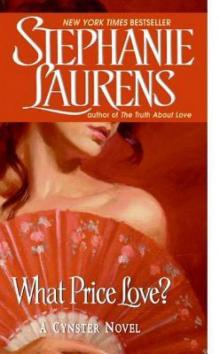 What Price Love?
What Price Love?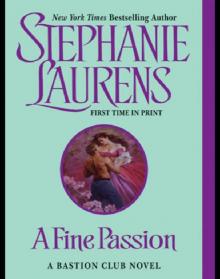 A Fine Passion
A Fine Passion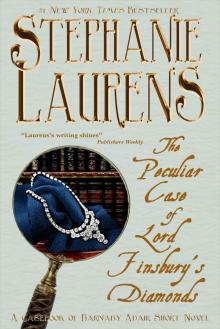 The Peculiar Case of Lord Finsbury's Diamonds: A Casebook of Barnaby Adair Short Novel (The Casebook of Barnaby Adair)
The Peculiar Case of Lord Finsbury's Diamonds: A Casebook of Barnaby Adair Short Novel (The Casebook of Barnaby Adair) Where the Heart Leads
Where the Heart Leads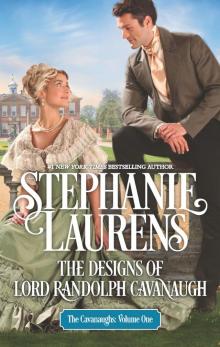 The Designs of Lord Randolph Cavanaugh
The Designs of Lord Randolph Cavanaugh A Secret Love c-5
A Secret Love c-5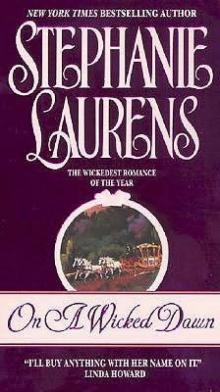 On a Wicked Dawn c-10
On a Wicked Dawn c-10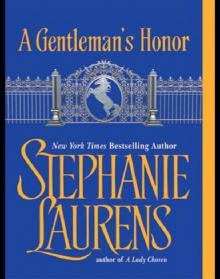 A Gentleman's Honor
A Gentleman's Honor THE LEGEND OF NIMWAY HALL_1750_JACQUELINE
THE LEGEND OF NIMWAY HALL_1750_JACQUELINE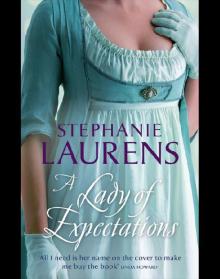 A Lady of Expectations
A Lady of Expectations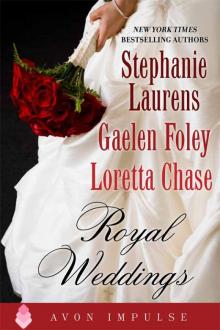 Royal Weddings: An Original Anthology
Royal Weddings: An Original Anthology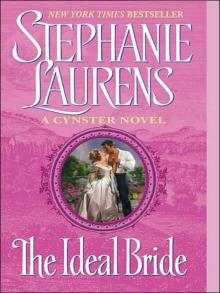 The Ideal Bride (Cynster Novels)
The Ideal Bride (Cynster Novels) Mastered by Love
Mastered by Love A Buccaneer at Heart
A Buccaneer at Heart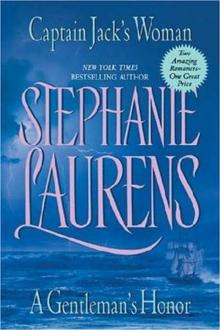 Captain Jack’s Woman / A Gentleman's Honor
Captain Jack’s Woman / A Gentleman's Honor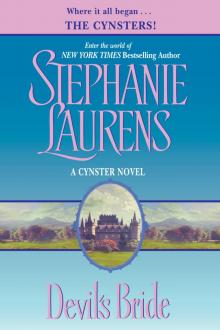 Devil's Bride with Bonus Material
Devil's Bride with Bonus Material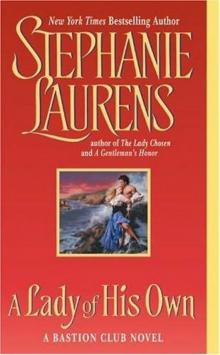 A Lady of His Own
A Lady of His Own A Secret Love
A Secret Love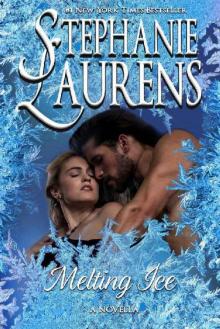 Melting Ice
Melting Ice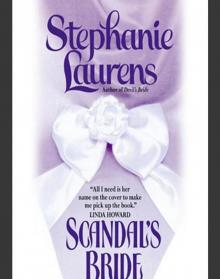 Scandal's Bride
Scandal's Bride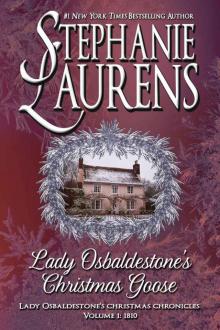 Lady Osbaldestone’s Christmas Goose
Lady Osbaldestone’s Christmas Goose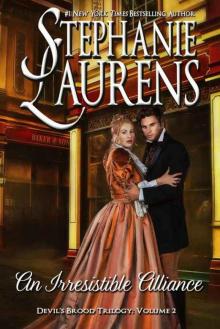 An Irresistible Alliance
An Irresistible Alliance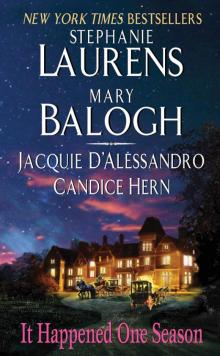 It Happened One Season
It Happened One Season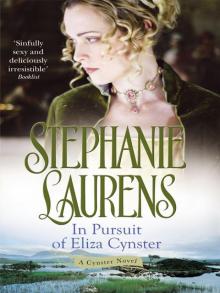 In Pursuit Of Eliza Cynster
In Pursuit Of Eliza Cynster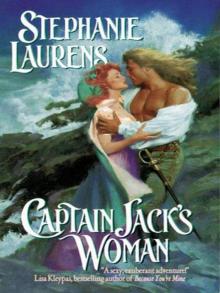 Captain Jack's Woman
Captain Jack's Woman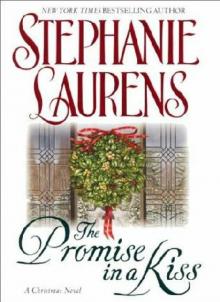 The promise in a kiss c-8
The promise in a kiss c-8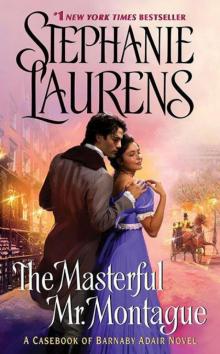 The Masterful Mr. Montague
The Masterful Mr. Montague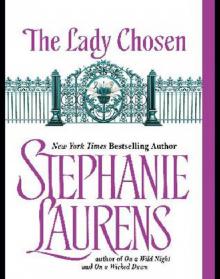 The Lady Chosen
The Lady Chosen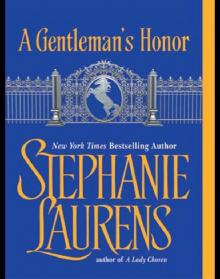 A Gentleman's Honor bc-2
A Gentleman's Honor bc-2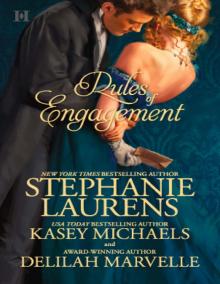 Rules of Engagement: The Reasons for MarriageThe Wedding PartyUnlaced (Lester Family)
Rules of Engagement: The Reasons for MarriageThe Wedding PartyUnlaced (Lester Family) Secrets of a Perfect Night
Secrets of a Perfect Night The Taste of Innocence
The Taste of Innocence On A Wicked Dawn
On A Wicked Dawn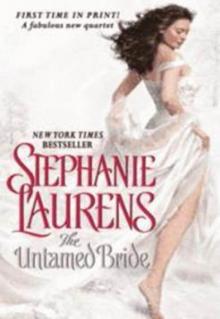 The Untamed Bride
The Untamed Bride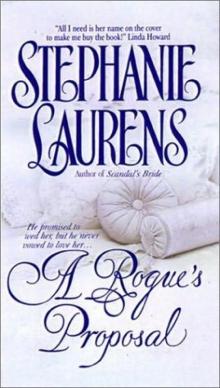 A Rogues Proposal c-4
A Rogues Proposal c-4 Rakes Vow c-2
Rakes Vow c-2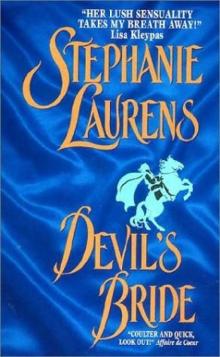 Devils Bride c-1
Devils Bride c-1 Hero, Come Back
Hero, Come Back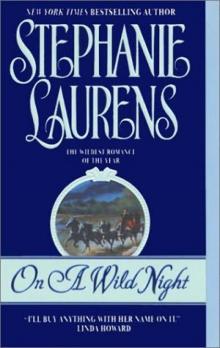 On a Wild Night c-8
On a Wild Night c-8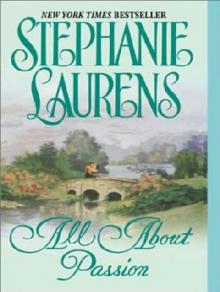 All About Passion c-7
All About Passion c-7